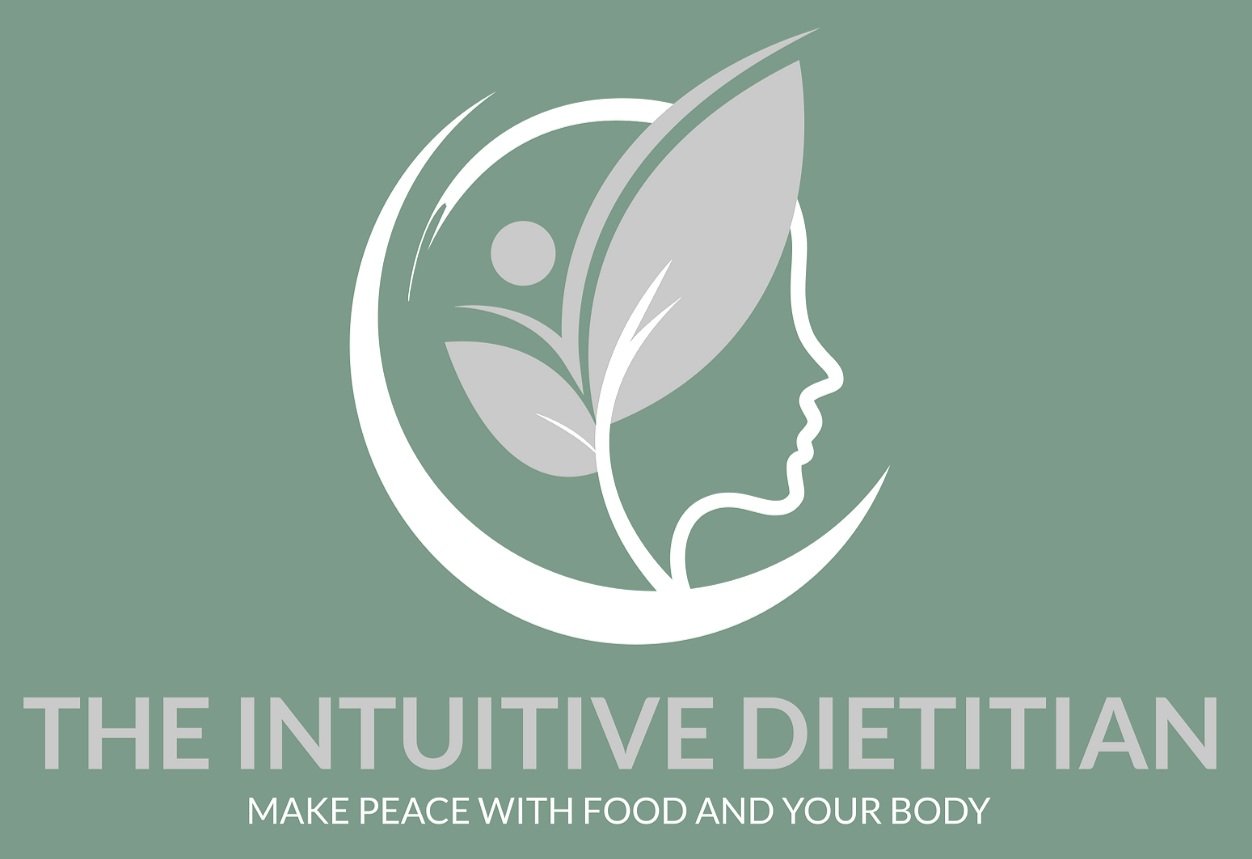Feel Good All Winter Long: A Nutritionist’s Tips for Boosting Mood Naturally
As the days grow shorter and colder, many people experience a dip in mood, energy levels, and motivation. This phenomenon, often referred to as the "winter blues," is a milder form of seasonal affective disorder (SAD) that can leave you feeling sluggish, down, or even irritable. While the exact causes aren’t fully understood, reduced exposure to sunlight, changes in circadian rhythms, and shifts in hormone levels like serotonin and melatonin are believed to play a role.
The good news? Nutrition can be a powerful tool in boosting your mood and supporting mental well-being during the colder months. By incorporating key nutrients into your diet, you can help balance your body’s natural rhythms, improve energy levels, and even ease feelings of sadness or fatigue. In this blog post, I’ll share expert tips as a dietitian on how to fuel your body with mood-boosting foods to help you feel your best all winter long. Let’s brighten up those dark days together!
Understanding Seasonal Affective Disorder
What is Seasonal Affective Disorder
Persistent sadness or low mood.
Fatigue or low energy, even after a full night’s sleep.
Increased cravings for carbohydrates and weight change.
Loss of interest in activities you typically enjoy.
Difficulty concentrating or making decisions.
Feelings of hopelessness or worthlessness.
Seasonal Affective Disorder (SAD) is classified as a subtype of major depressive disorder. Its symptoms mirror those of general depression but are tied specifically to seasonal changes. For those with SAD, the changing seasons bring more than just a calendar flip—they trigger noticeable changes in brain chemistry and hormone levels, which can disrupt mental and emotional health.
Who is at risk?
While anyone can experience SAD, certain factors increase the likelihood of developing this condition:
Geography: People living farther from the equator, where daylight hours are significantly reduced in winter, are at a higher risk.
Gender: Women are four times more likely to experience SAD than men, although the symptoms tend to be more severe in men.
Age: Young adults are more likely to develop SAD, although it can occur at any age.
Family History: A family history of depression or other mood disorders may predispose you to SAD.
Existing Mental Health Conditions: People with pre-existing depression or bipolar disorder are more vulnerable to seasonal changes.
How the Brain and Gut are Connected.
The connection between your gut and brain, often called the gut-brain axis, is a powerful communication network that influences your mood and mental health. Your gut is home to trillions of microbes that play a key role in producing neurotransmitters like serotonin and dopamine, which affect how you feel and think. When your gut is healthy, it supports brain function, helps regulate mood, and even reduces symptoms of anxiety and depression. On the flip side, an imbalanced gut can contribute to inflammation and disrupt this vital connection. By nourishing your gut with fiber, probiotics, and nutrient-dense foods, you can support both your brain and emotional well-being—helping you stay brighter and more resilient all winter long.
6 Tips that Boost Mood with nutrition
When it comes to combating the winter blues, food is a powerful ally. These key nutrients can support brain function, regulate mood, and even improve your body’s ability to handle stress.
1) Include Probiotics
The trillions of microbes living in your gut play a direct role in regulating your mood. By eating probiotic-rich foods or taking supplements, you can nurture these beneficial bacteria, helping to support a balanced gut-brain connection.
Probiotic Rich Foods
Yogurt (look for live, active cultures).
Sourdough, cottage cheese
Fermented vegetables like sauerkraut, kimchi, and pickles.
Miso and tempeh.
Drinks like kombucha or Kefir
Probiotic Supplements
If you’re not a fan of fermented foods, a high-quality probiotic supplement is an excellent alternative. Choose a product that:
Contains at least 10 billion CFUs (colony-forming units).
Includes strains like Lactobacillus and Bifidobacterium, which are associated with mood benefits.
Is third-party tested for quality and potency.
Here are two probiotics I regularly recommend from Fullscript.
Try it in your Kitchen! Cottage Cheese Recipe Pack
2) Prebiotic Foods
Once probiotics are in your gut, they need fuel to thrive. That’s where prebiotics—non-digestible fibers that nourish good bacteria—come into play. Prebiotic foods can enhance gut health, leading to improved mood regulation. Probiotics and Prebiotics work as a team in your gut!
Try it in your Kitchen! Overnight Apple Pie Oats
Prebiotic Rich Foods
Garlic, onions, and leeks.
Asparagus and artichokes.
Whole grains like oats and barley.
Bananas and apples.
Nuts and seeds.
3) Omega 3 Fatty Acids
Many Americans do not get enough omega-3 fatty acids, which are essential for heart, brain, and overall health. Since the typical Western diet is high in omega-6 fats but low in omega-3s, balancing the intake of these fats is crucial for optimal health. Supplementing with fish oil or algae-based omega-3s can help fill the gap for those who don't consume enough through diet alone. Omega-3 fatty acids are known for their anti-inflammatory properties and their ability to support brain health. They help maintain the structure of brain cells and regulate neurotransmitters involved in mood, such as serotonin and dopamine.
Try it in your kitchen! Avocado Lime Salmon
Omega 3 Food Sources
Fatty fish: Salmon, mackerel, sardines, and trout.
Plant-based options: Chia seeds, flaxseeds, walnuts, and hemp seeds.
Fortified foods: Some eggs, milk, and plant-based beverages are fortified with omega-3s.
4) Vitamin D Levels
One of the most significant nutritional challenges in winter is maintaining adequate levels of vitamin D, also known as the "sunshine vitamin." . A drop in vitamin D levels over the winter is common due to reduced sunlight exposure, which limits the body’s natural ability to produce this essential nutrient. Vitamin D plays a critical role in serotonin production and mood regulation, and deficiencies are often linked to depressive symptoms. Similarly, poor gut health can contribute to lower vitamin D levels, as an imbalanced gut microbiome or inflammation in the digestive tract may impair vitamin D absorption. This double impact can weaken immunity, disrupt gut function, and increase the risk of deficiencies, making it important to address both factors through diet, supplementation, and gut-friendly lifestyle practices.
Try it in your Kitchen! Strawberry Almond Chia Pudding
Vitamin D Sources
Foods: Fatty fish (like salmon and tuna), egg yolks, and fortified dairy products.
Supplements: Vitamin D3 is generally recommended, as it’s more effective at raising levels in the blood. A healthcare provider can help determine the right dosage for you. (Do NOT megadose this nutrient without checking lab levels.)
5) Tryptophan Rich Foods
Tryptophan is an essential amino acid that your body uses to produce serotonin, a neurotransmitter that regulates mood and promotes a sense of well-being. Including tryptophan-rich foods in your meals can support your body’s natural serotonin production. Pairing tryptophan-rich foods with complex carbohydrates (like whole grains) can enhance the body’s absorption of this amino acid.
Try it in your Kitchen! Tofu Sheet Pan Stir Fry
Tryptophan Sources
Turkey, chicken, and eggs.
Nuts and seeds (especially sunflower and pumpkin seeds).
Soy products like tofu and edamame.
Dairy products like milk and cheese.
6) Avoid Foods that Sabotage your Mood
Avoiding mood-sabotaging foods like highly processed or high-sugar options during the winter is important because these foods can cause blood sugar spikes and crashes, leading to irritability, fatigue, and mood swings. Additionally, diets high in sugar and processed ingredients can disrupt the gut microbiome, which plays a critical role in producing mood-regulating neurotransmitters like serotonin.
Mood-Sabotaging Foods
Sugary Snacks and Drinks: These cause blood sugar spikes and crashes, leading to irritability and fatigue.
Refined Carbohydrates: White bread, pastries, and processed snacks can contribute to mood instability.
Alcohol: It may seem comforting, but alcohol is a depressant that can interfere with sleep and exacerbate low moods.
Lifestyle Approach to Boosting Mood
While nutrition plays a powerful role in managing Seasonal Affective Disorder (SAD), pairing it with lifestyle and holistic approaches can create a well-rounded strategy to tackle the winter blues. These techniques address not just the body, but the mind and spirit, helping to boost overall well-being.
Light Therapy
Light therapy is one of the most effective treatments for SAD. By exposing yourself to bright, artificial light that mimics natural sunlight, you can help regulate your circadian rhythm and improve serotonin production.
Physical Activity
Movement is a proven mood booster, thanks to its ability to release endorphins—your brain’s natural feel-good chemicals. It also helps regulate stress hormones and improves energy levels. Getting outside and walking is an excellent form of winter movement!
Mindfulness
Mindfulness helps you stay present and manage the anxiety or sadness that often accompanies SAD. Stress reduction techniques can lower cortisol levels, improving both your mood and energy. Try meditation, breathing exercises, stretching, or journaling.
Consistent Routine
SAD often disrupts sleep and energy patterns, but maintaining a structured daily routine can help stabilize your circadian rhythm. Try to eat on a schedule and build reliable sleep hygiene patterns.
Consider Professional Support
If SAD symptoms are severe or persist despite lifestyle changes, seeking help from a healthcare professional can make a significant difference. Find the support of a team with a therapist, possibly medication and a registered dietitian to help with building mood boosting foods and schedules.
Ready to start your nutrition journey? Book your FREE Discovery call today.










